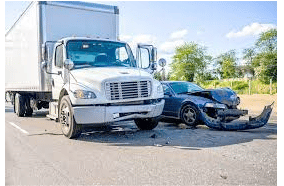Whether you have been involved in a truck accident or you are simply interested in learning more about the laws surrounding such incidents, this article provides an overview of the issues that can arise in the aftermath of such an accident. You’ll learn about common causes of truck accidents, the liability of the trucking company, and compensation for injuries sustained. Visit website.
Common causes of truck accidents
Thousands of lives are lost each year in truck accidents. These accidents cause both severe injury and property damage.
There are several common causes of truck accidents. Some of these causes are driver errors, faulty equipment, and faulty maintenance.
Poor driver performance is a leading cause of truck accidents. If a driver is fatigued or distracted, he may not be able to control the massive vehicle on the road. This could cause a head-on collision, a rear-end collision, or a miscalculation of speed.
Faulty brakes are also a major cause of truck accidents. A truck’s brake system is much more complex than that of a car. It can be damaged or fail completely, causing an accident.
The Federal Motor Carrier Safety Administration (FMCSA) estimates that there are around 7,000 truck accidents each year. These accidents may cause permanent injury, or death.
Liability of the trucking company
Depending on the circumstances, the trucking company may be liable in a truck accident. This can include accidents caused by negligent driving or maintenance practices. It also may include accidents caused by an employee.
Liability of the trucking company in truck accidents can be a complicated issue. In fact, determining who is at fault in a crash is sometimes more difficult than determining who is at fault in a car crash.
Trucking companies are regulated by the Federal Motor Carrier Safety Administration (FMCSA). They must follow certain regulations for maintaining and training drivers. The agency has also begun requiring drivers to use an Electronic Logging Device (ELD). This device automatically records data such as miles traveled and engine hours. ELDs are important for establishing a company’s responsibility for an accident.
Comparative negligence defense
Several states in the United States have comparative negligence laws. These laws attempt to address the issues of apportioning liability between multiple defendants when a collision occurs.
There are several ways to interpret the comparative negligence doctrine, which depends on the specific jurisdiction in question. The most common method involves evaluating the conduct of each party in question, with the goal of apportioning as much of the fault as possible.
The comparative negligence system is most notable for its ability to allow plaintiffs to recover damages if the victim was less than completely at fault for the accident. Often, the jury will determine which party is most at fault for the crash, with the resulting compensation largely dependent on the jury’s assessment of that individual’s degree of fault.
Wrongful death
Whether you lost a loved one in a truck accident or you were injured in a truck accident, you might be able to sue for wrongful death. Having a lawyer in your corner is crucial in these cases. He or she will be able to help you collect the right evidence.
Evidence is essential in all personal injury cases, but it is particularly important in wrongful death cases. In these cases, evidence can be anything from the truck driver’s cell phone records to vehicle maintenance records.
The wrongful death claim may not only pay for the funeral of a loved one, but can also cover a survivor’s lost income, medical care, or other financial responsibilities. It can also provide closure.
In addition to providing financial compensation, wrongful death suits are an excellent way to hold a negligent party accountable. A lawyer will help you file a lawsuit against the at-fault party.
Compensatory damages
Depending on the details of your case, you may be able to receive compensation for injuries in a truck accident. There are two kinds of damages you can seek: economic and non-economic.
Economic damages are money that you can receive for past and future medical expenses, including lost wages. You may also be able to claim lost benefits, such as income or insurance.
Non-economic damages include pain and suffering, emotional distress, and loss of enjoyment of life. These damages can be difficult to calculate. You will need an expert’s opinion to determine how much money you will need in the future. You can also seek lost wages, if you had to take time off work or change jobs.
Economic damages may also include damages for destroyed personal property, such as cars or homes. You may also be able to claim replacement services, such as repairs or medical equipment. These damages are generally calculated based on formulas and factors unique to your case. However, you may need to prove that the services were reasonably necessary.




